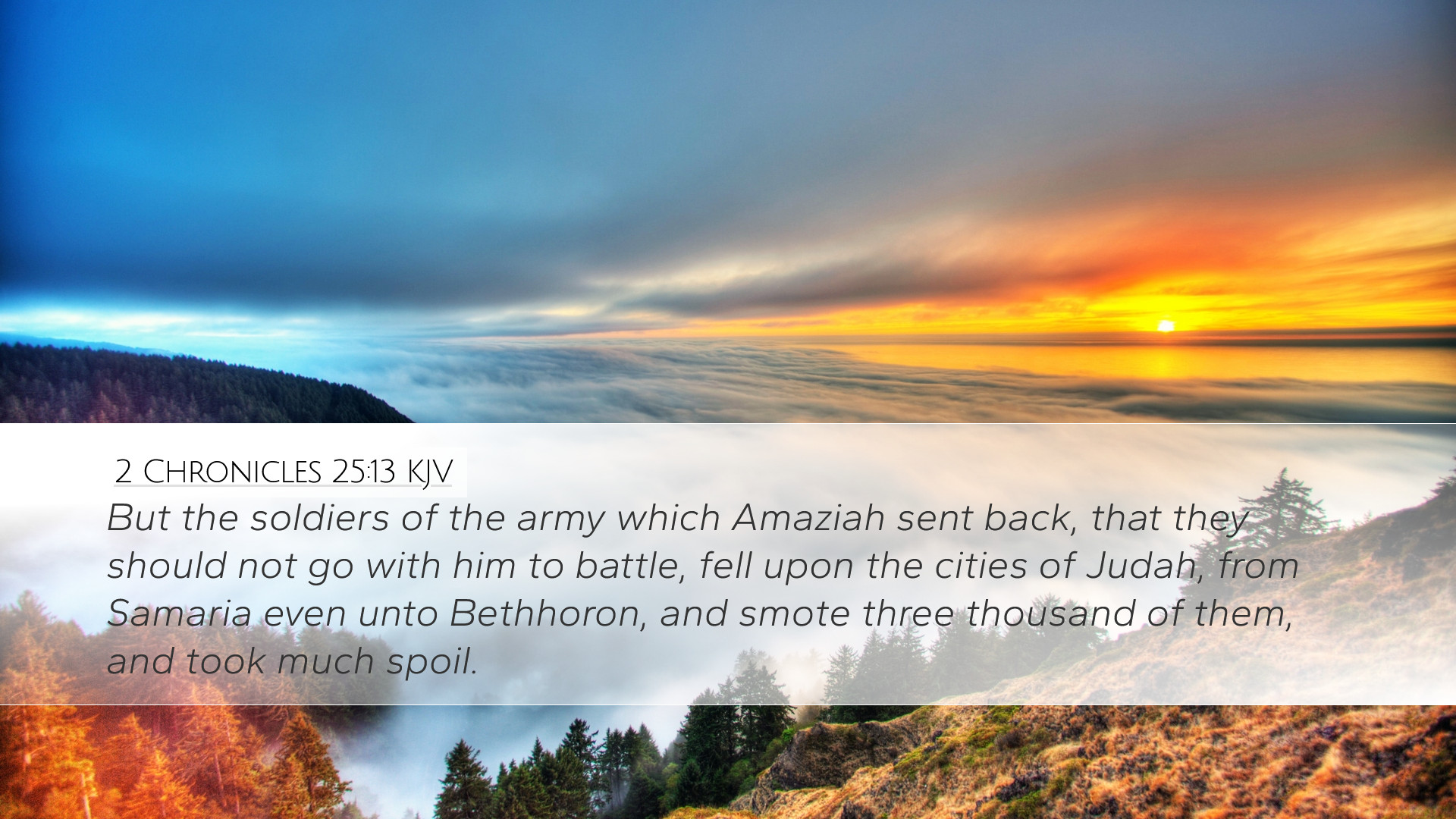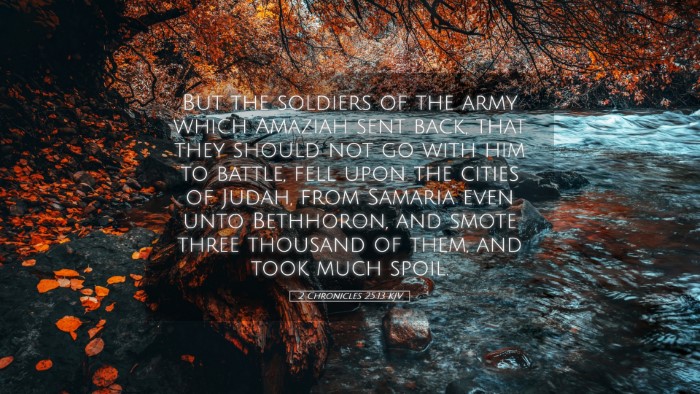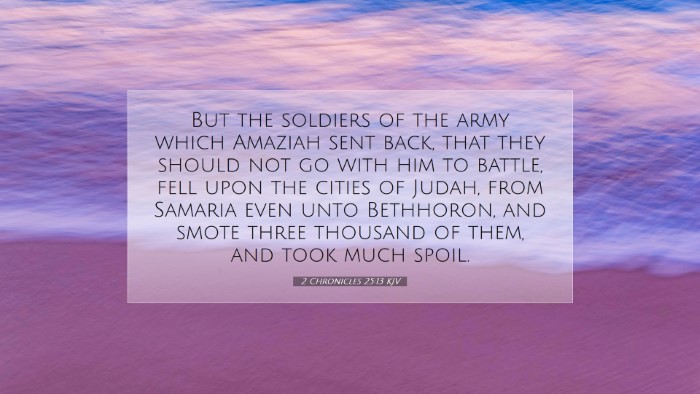Commentary on 2 Chronicles 25:13
The verse in focus, 2 Chronicles 25:13, states:
"But the soldiers of the army which Amaziah sent back, that they should not go with him to battle, fell upon the cities of Judah, from Samaria even unto Beth-horon, and smote three thousand of them, and took much spoil."
Contextual Background
To fully appreciate the significance of this verse, it is essential to understand the broader context of King Amaziah's reign. Following the death of Joash, Amaziah ascends to the throne of Judah. He sought to establish his rule and returned to the worship of Yahweh after a period of idolatry prevalent in the kingdom.
Amaziah's military pursuits reflect both courage and foolishness. He hired mercenaries from Israel to bolster his forces, yet his decision to later dismiss them demonstrated a lack of trust in God and a disconnect with the nature of divine guidance.
Key Themes and Insights
-
Divine Providence and Judgment:
Matthew Henry notes that the soldiers who were sent back exemplify the consequences of disobedience and misplaced trust. Despite Amaziah's authority to send them away, their resulting actions served as a divine judgment on the very kingdom he sought to protect.
-
Isolation in Leadership:
Albert Barnes emphasizes how the dismissal of experienced Israeli troops left Amaziah vulnerable. His decision to rely more on divine favor than military might illustrates a common theological tension between faith and prudence in leadership.
-
Consequences of Misguided Decisions:
Adam Clarke highlights that the soldiers’ raid displayed the repercussions of Amaziah's poor judgment. The raid upon the cities of Judah by these dismissed soldiers is a vivid reminder that the consequences of leadership decisions can often extend beyond immediate intention and manifest as broader societal repercussions.
Theological Reflections
This verse highlights essential theological considerations regarding the sovereignty of God and human agency. Amaziah attempted to control the situation through his decisions, yet it is evident that God's providential hand remained active in the unfolding narrative.
As theologians and Bible scholars reflect upon this passage, several implications arise:
-
Trusting in God’s Plan:
The essential call is always to trust in God's plan rather than relying solely on earthly strategies. Amaziah's initial reliance on hired forces, followed by his rejection of them, signifies an important lesson in spiritual leadership: the significance of aligning one's actions with God's will.
-
Weight of Authority:
Leadership comes with weighty responsibilities. Leaders are often called to make decisions impacting many lives, and thus they must seek divine wisdom and direction above all else. The fallout from Amaziah's decisions serves as a cautionary tale.
-
Realities of War and Strife:
The account demonstrates the harsh realities of conflict. Even when leaders have noble intentions, the complexities of life often yield tragic outcomes. This reminder pushes believers to engage in prayer, seeking God’s guidance amid turbulence.
Practical Applications
In light of 2 Chronicles 25:13, several practical applications emerge for today's church leaders and congregations:
-
Seeking Counsel:
Just as Amaziah failed to seek God's counsel appropriately, leaders today should surround themselves with wise advisors and remain in constant prayer, ensuring their decisions reflect spiritual discernment.
-
Understanding Consequences:
Leaders must be acutely aware that their decisions can have far-reaching implications. The impact on communities and congregations should remain at the forefront of all decision-making processes.
-
Faith in God’s Protection:
Reliance on God for protection in spiritual and physical battles signifies a deepening faith. Remembering that God ultimately oversees all outcomes should compel leaders to act with trust in His sovereign plan.
Conclusion
2 Chronicles 25:13 serves as a powerful reminder of the interplay between human authority and divine providence. Through amazement at the unfolding of events, we are reminded that the actions of leaders can have dire consequences.
Believers, particularly those in positions of influence, are called to act with caution, aware of their accountability not only to their followers but also to God. The narrative invites reflection on faith, leadership, and the deep need for divine guidance in both everyday decisions and monumental choices.


